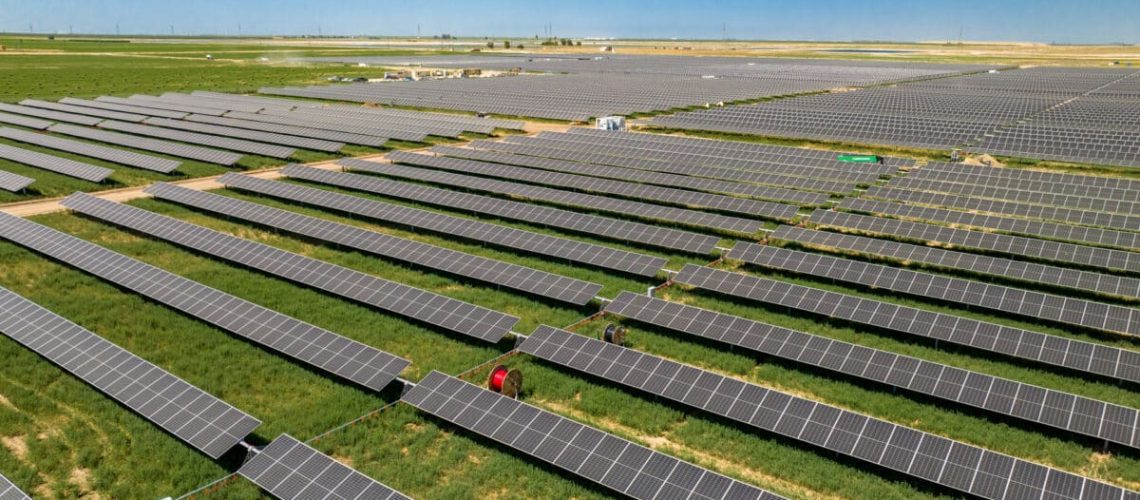At 10 MWac, the project is the largest Disadvantaged Community Solar Project in California and includes a Grid Alternatives training program to prepare local community members for careers in solar installation.
The Fresno Disadvantaged Community (DAC) Solar Farm is unique in many ways. It’s the first utility-scale solar farm of its size within the city limits of Fresno, California. It’s the largest solar project for low-income residents in California. It pays prevailing wages and brings job training to formerly incarcerated individuals who are looking to join the clean economy. Once the project begins operation, it will provide low-cost, clean energy to local PG&E customers under PG&E’s Disadvantaged Communities Green Tariff (DAC-GT) Program.
Multiple stakeholders collaborated to bring the project to fruition. A team including local developers Larry Westerlund (a former Fresno City Council member) and Richard Spencer (a prominent Fresno businessman) partnered with California-based solar developer White Pine Renewables to bring the project from concept to construction readiness. The long-term project owner is AB CarVal, a global alternative investment manager that has deployed over $3.0 billion in clean energy investments.
The project development team worked closely with local partners in Fresno. Commenting on the importance of such collaboration to make the project a reality, Fresno City Council Member Miguel Arias noted that “the Fresno DAC Community Solar Farm is the perfect case study of ensuring equity in the new green economy through public-private partnerships that benefit all Fresno residents.” Arias added that the project is “the type of solar development where everyone wins.”
White Pine co-founder Evan Riley told pv magazine USA that the project is “a win-win-win, as it provides a benefit to the local community through utility bill savings, increased lease revenue to the City of Fresno as the landowner, helps PG&E meet their DAC goals, and valuable job training and high-paying construction opportunities to local community members.” Riley added that the project’s location – in the heart of an urban, disadvantaged community – “enables local residents to see a direct link between renewable energy and economic benefits.”
Job training
Workers for the project were hired locally through a jobs training program run by Grid Alternatives, a national nonprofit organization based in Oakland, Calif., that has been a leader in renewable energy workforce training for decades.
“AB CarVal and White Pine proved their commitment to inclusive solar workforce development as the key partner for our recent training in Fresno,” commented Karina Gonzalez, co-executive director of Grid Alternatives Central Valley. “Their team advocated for our program’s graduates as they sought employment, and job placements have far exceeded our expectations as a result.”
Nearly 70% of the participants in Grid Alternative’s program have already secured jobs with AB CarVal and White Pine’s regional installation subcontractors and other local solar companies, including several graduates who are now on the project construction team.
City collaboration
The project, located in Council District 3, was made possible by close collaboration with the City of Fresno. Riley told pv magazine USA that Westerlund first identified the project site as suitable for solar, and the project development team worked closely with council member Arias and local community members throughout the permitting process. Riley praised Arias, noting that Arias “was really the champion within the city who helped rally a number of local stakeholders to make this happen.”
“The Fresno DAC Community Solar Farm is the first project of its kind in California, but it will not be the last,” said Riley, adding that “our collective success has paved the way for future, equity-focused utility-scale community solar projects across the state.”



